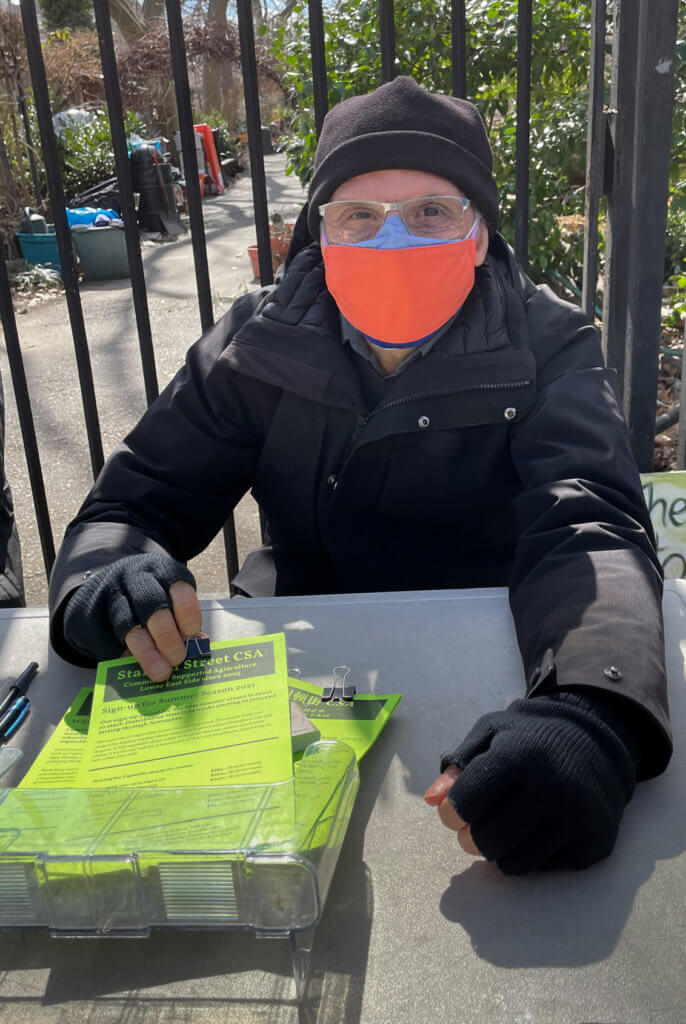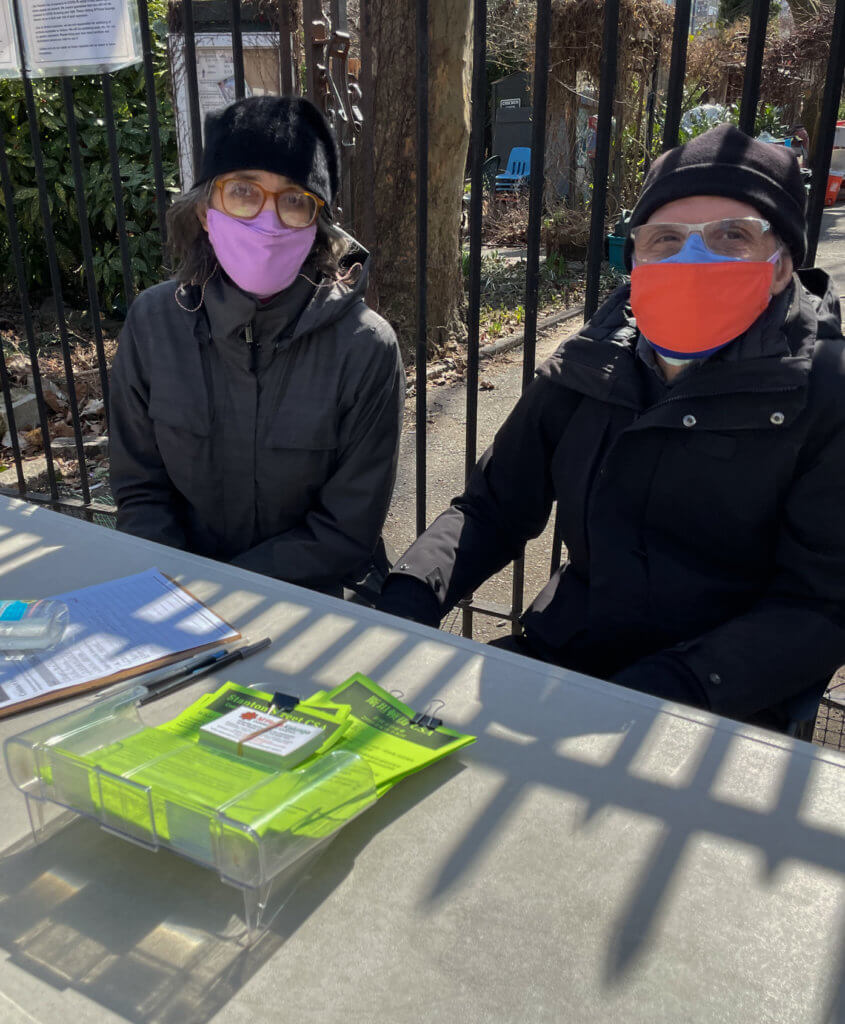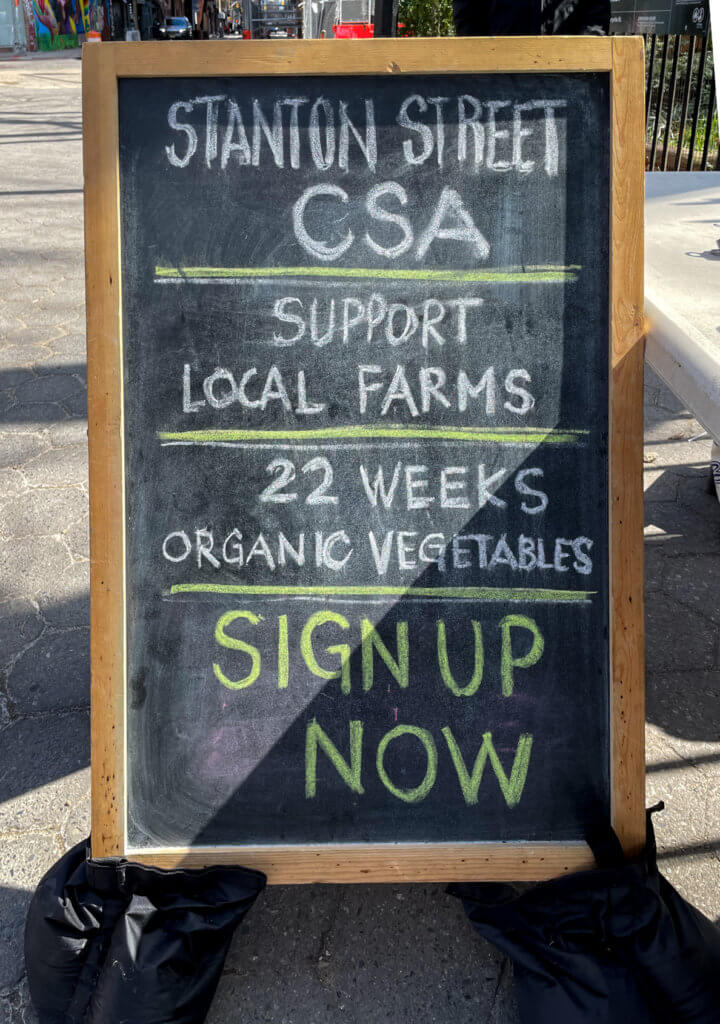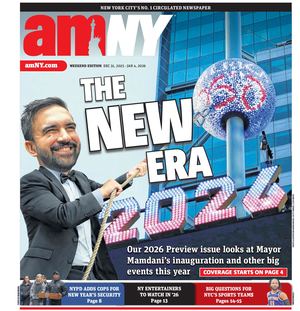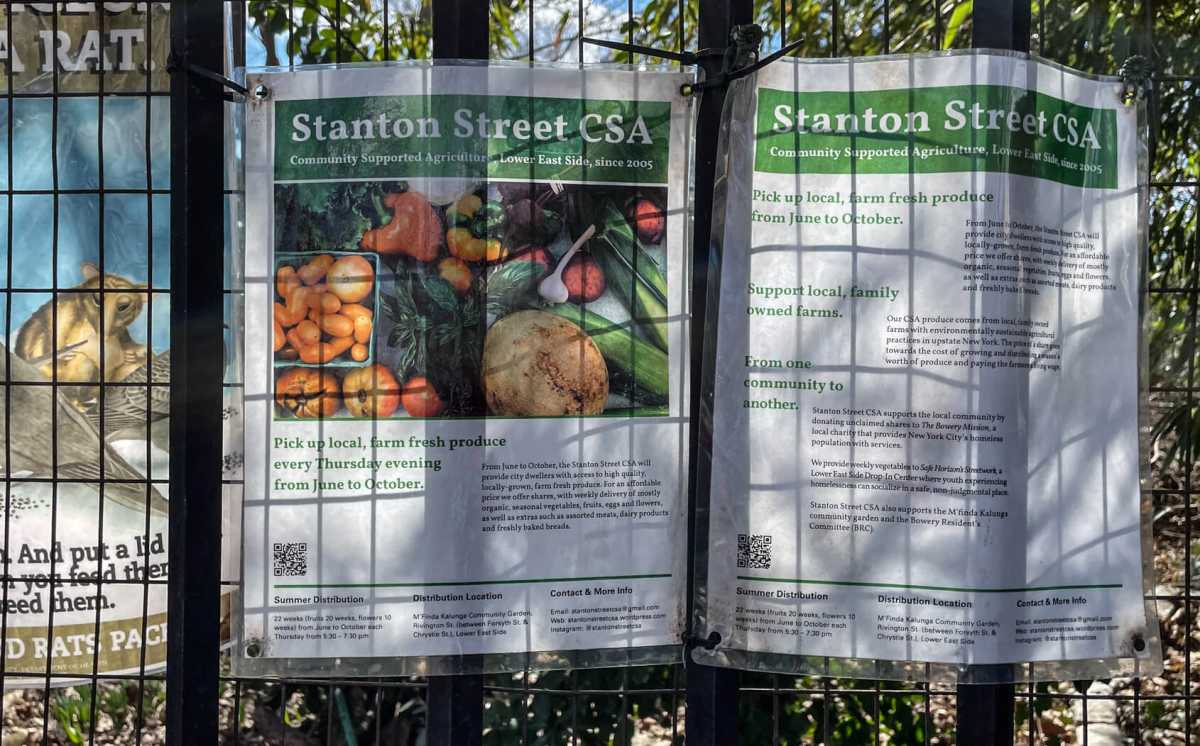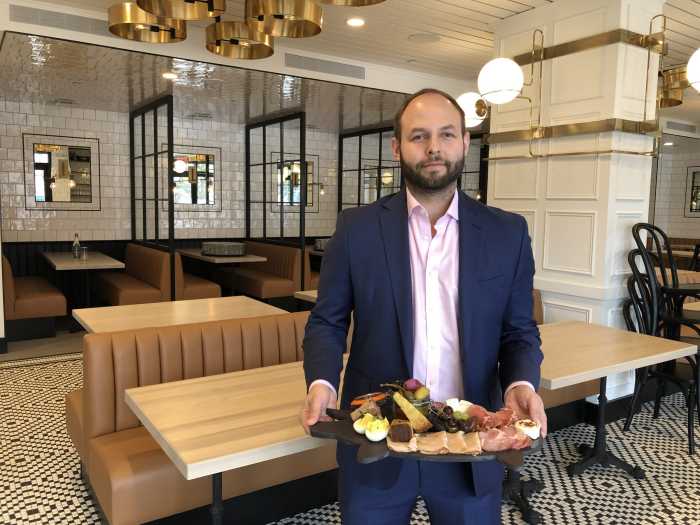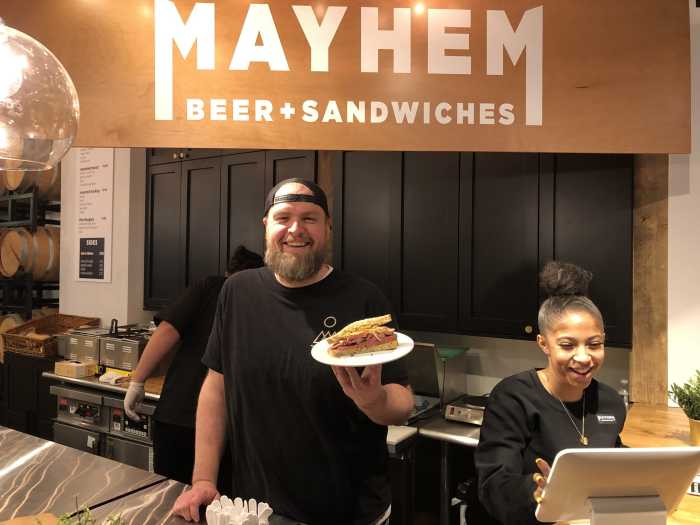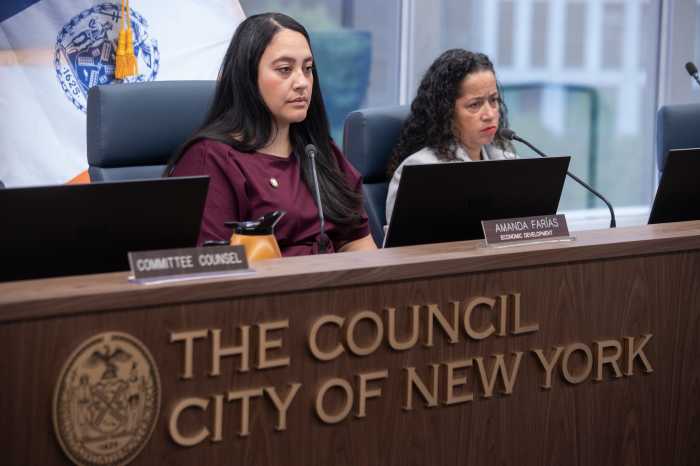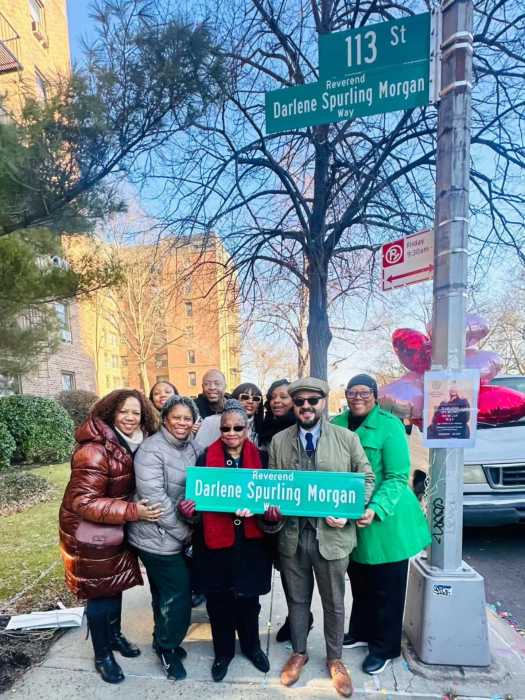Absorbing Vitamin D sunrays this past mid-March Sunday, Rainer Keller tabled outside M’Finda Kalunga Community Garden on Rivington Street.
While spring and summer are around the corner, those of us rooted here in New York may still venture not far. That’s why it’s time to signup with your local Community Supported Agriculture (CSA).
Just outside the garden’s fence, a sandwich board next to Keller’s table read: Stanton Street CSA—Support Local Farms—22 Weeks-Organic Vegetables—SIGN UP NOW. Keller was dispensing info on the Stanton Street CSA (community supported agriculture).
Keller’s been a member since this CSA’s inception 2005.
Exactly what is a C.S.A.? Arrangements between communities and local farmers constitute a CSA. Community members purchase a share of vegetables from a regional farm for a full growing season. The Stanton Street CSA starts in June and lasts through November.
At a local distribution site, weekly—here, it’s the M’Finda Kalunga Community Garden on Rivington—members pick up freshly picked seasonal vegetables on Thursdays, between 5:30 AND 7:30 p.m. Keller explained that this CSA used to be on Stanton Street, thus the name, but now its based at this community garden. It numbers 100-some members.
With varying quantities during the 22 weeks, starting and ending with smaller share sizes, the high-season share is substantial. “We can match people up who want to split a share,” says Irit Houvras, responding to the inquiry that a share might be too much for a single person.
With this CSA, “add-ons”, additional charges to the share, can include eggs and fruits.
Most of the produce comes from the Windflower Farm, just north of Albany, that practices environmentally sustainable agriculture. The eggs and stone fruits come from nearby farm neighbors. Windflower Farm provides produce for 13 CSAs within the City.
Farmers are secure in their season’s funding with guaranteed customers in this win-win local food system, which provides reasonably priced, mostly organic, fresh seasonal food to CSA members. “It’s less than the farmer’s market,” piped up Houvras, adding , “It changes what you eat and how you eat.”
Stanton Street CSA follows the original model—only locally grown items, no middle producer or distributor. For this CSA, the early bird sign-up, before March 28, is $585— $26.80 a week; the late sign-up, before May 22, is $640, $29.10, a week. Fruit and egg shares are additional.
The food justice organization Just Food lists over 125 New York City CSAs in its network (www.justfood.org/value-chain-map) among the hundreds of City CSAs, based in gardens, churches, organization offices and community centers.
“We will be hosting a Zoom Q&A, Saturday, March 27, at 10 a.m., so interested prospective members can pick our brains,” says Stanton Street CSA member Julia. “And maybe even meet Farmer Ted, if we can coax him off the fields and onto Zoom!”
Email stantonstreetcsa@gmail.com for the invite link in attending this info session (and maybe meet the farmer).
Early blooming snowdrops have emerged from the City’s frozen flowerbeds and recent bright daffodils suggest signs of spring. While New Yorkers continue to get vaccinated, it almost feels that there is a light through the pandemic tunnel. Eating fresh locally grown foods are part of that light.
